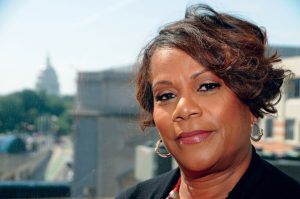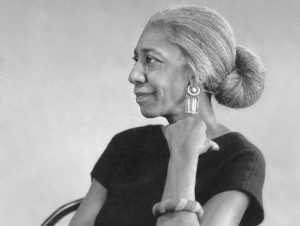Wednesday, February 09, 2022
Celebrating Black Older Adult Pioneers
In honor of Black History Month, we want to celebrate and highlight the accomplishments of Black leaders who continue to advocate and inspire into their older years. While most of us are familiar with the historic timeline starting from the Civil Rights Movement in the 1960s and continuing through the election of the first African American president in 2008, we sometimes fail to celebrate the many African American pioneers and visionaries who have impacted our communities and the world. Here are a few notable Black names in history, both current and past who, well into their 50s and beyond, continue to inspire us with their drive and passion.

Source: Howard University
Mildred “Mit” C. Joyner whose illustrious career spans 40 years, currently serves as the president of the National Association of Social Workers (NASW). A community activist and pioneer in gerontology, she established the first Master of Social Work program in the nation. Mit is also the recipient of the prestigious Phyllis Black Lifetime Achievement Award for her leadership and commitment to social justice and the quest for obtaining equity for all.

Source: Military.com
Benjamin Oliver Davis, Sr served as the first Black general for the US Army. Davis worked to desegregate the US troops overseas during World War II, where he received a Distinguished Service Medal. Although Davis was assigned lower ranking duties that avoided putting him in command of white troops, he eventually rose through the ranks to become the first Black Army colonel in 1930. At age 62, Davis was promoted to brigadier general and continued serving until age 70. After retiring from active duty, he continued to serve as adviser to the military on racial discrimination, advocating for full integration of the US military.

Source: Nytimes.com
Born in 1916, Edna Lewis, grew up to be a legendary New York chef at a time when female chefs were rare. She wrote three cookbooks after age 55 which, according to The New York Times (February 2006), “revived the nearly forgotten genre of refined Southern cooking while offering a glimpse into African-American farm life in the early 20th century.” She continued to be a chef in Brooklyn through age 75.
These pioneering older adults remind us of why we celebrate Black History month. This month is an opportunity to not only reflect and celebrate but also to take action toward a shared vision for inclusion, equity and justice because there is still much work to do to bring about much-needed change.
The Intersection of Age and Race
Older adults are especially vulnerable to the effects of racism and inequities. Ageism is a significant and pervasive challenge that multiplies racial inequities. As race and age disparities intersect, Black older adults face unique challenges that often go unrecognized in the common cultural discourse. We know that African American older adults are disproportionately affected by many diseases and chronic illnesses from diabetes and heart disease to mental health issues and even death from COVID-19. This issue leads to shorter, less healthy lives for African Americans compared to their white counterparts. A study from the Centers for Disease Control and Prevention underscores the extent of this vulnerability. It found that African Americans, ages 65 to 74, died of COVID-19 five times as often as whites. Those aged 75-to-84, had death rates 3½ times greater than whites. Blacks 85 and older died twice as often. The reasons behind these numbers are entrenched in our public policies and systemic racism.
A Call to Action for Aging Advocates
Black History Month reminds us that as aging advocates we have our own role to play in changing systems and policies. As we grapple with the inequities of the lingering pandemic including unequal access to healthcare and services, and economic systems built on racism and injustice, AgeGuide will continue to champion legislation and policies that support equity and inclusion at the state and federal level. We believe that even small changes in our own local neighborhoods and communities can have an impact. AgeGuide is committed to combating the challenges of ageism and racism by targeting resources and services to underserved communities and advocating for systemic change. We are working to break down barriers to serving older adults of color by expanding access to nutritious ethnic and cultural meals, translating program materials into multiple languages, and targeting resources such as internet and technology to underserved communities in our service area.
In honor of Black History Month and those Black pioneers and leaders who tirelessly influence our communities through their work, and volunteerism, we urge you to learn something new or take action on public policies that affect people of color. Send a letter to your legislator, join a racial justice organization, or attend an event to celebrate the vital role of African Americans in our society.
General Resources
Honoring African American Senior Citizens [Love to Know]
Older Adult Equity Collaborative Resource Library (ACL)
Celebrate African American History Month [CDC]
Join Illinois Aging together
Black History Month [History.com]
Why Black Aging Matters Too
Office of Minority Health
Go Deeper: In-Depth Educational Resources
Opportunities for White People in the Fight for Racial Justice
Aging While Black: The Crisis Among Black Americans as They Grow Old
Why Ally is a Verb Not a Noun



